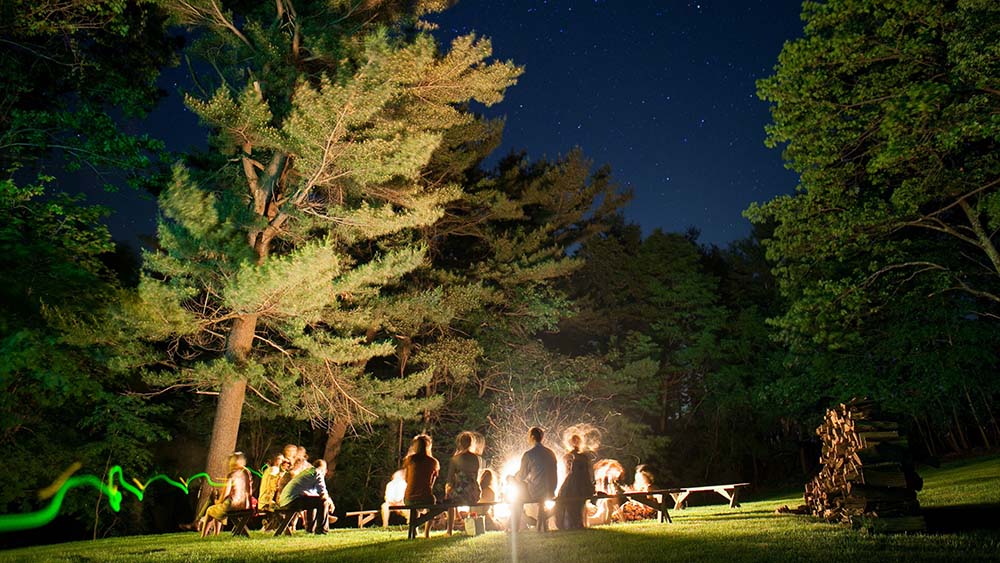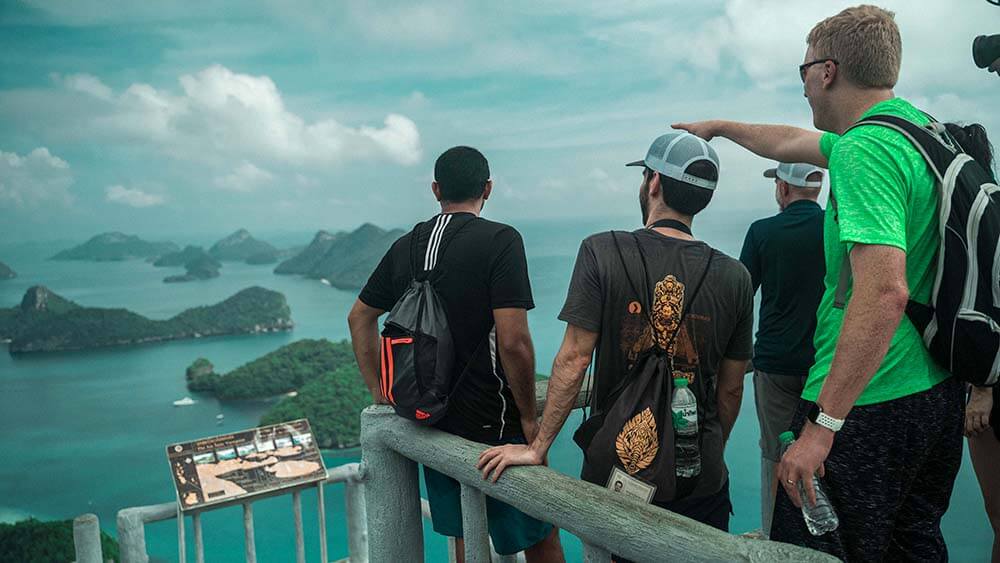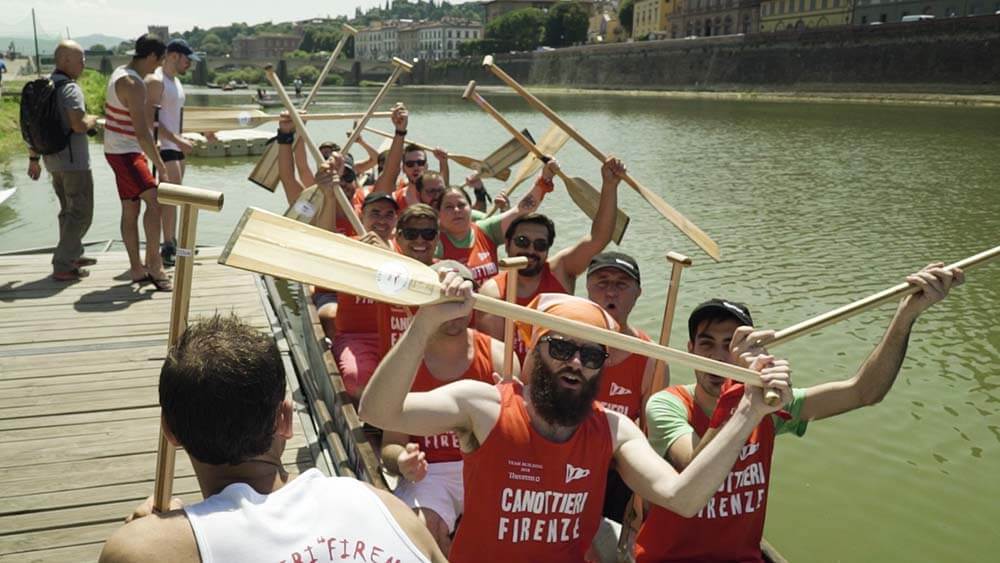
The 500-acre Cedar Lakes Estate in upstate NewYork has seen a huge bump in inquiries for corporate retreats — 150 percent more inquiries than in 2019. “If 2021 was the year of reemergence, 2022 is the year of reconnection,” said cofounder Lisa Karvellas.
Recently, Sean Hoff received an inquiry that stood out to him. It was unusual and yet right on trend: A potential client wanted to take their team to Barcelona for what would be the company’s first-ever retreat in its 16-year history.
“I asked them, ‘Why now?’” recalled Hoff, who founded and is managing partner of event planning agency Moniker, which specializes in corporate retreats. The client told him that most of the team, which doubled in size during the pandemic, had never met in person. And rather than make an anticlimactic, slow return to the office, a team trip to Barcelona felt like the best way to celebrate the start of a new chapter. Hoff said that they told him they wanted “to celebrate the fact that not only did we survive, but we actually kind of thrived.”

Sean Hoff
Since 2020, Hoff has seen a bump in requests like this — companies with a growing remote workforce looking to get away and reconnect or connect for the first time ever. Moniker is no stranger to this event-planning sector. For years, the Toronto-based agency has specialized in crafting corporate retreats, both in person and virtual, for tech and IT companies, a space where hybrid and remote work flourished long before the pandemic required adopting this model. But Hoff is noticing shifts in when, where, and how these groups want to meet — everything from how the agenda should be structured to the type of venue or location that companies seek.
Findings from the most recent “Business Travel Tracker” survey from U.S. Travel, J.D. Power, and Tourism Economics reflect changes as well. The survey, which interviewed more than 2,500 travelers in March 2022, found that four out of five business travelers work remotely at least some of the time. Nearly two out of five of those travelers who work remotely at least part-time report that their employer encourages them to travel to engage with other team members in person, and three out of 10 said they’re encouraged to attend in-person company or team celebrations.
Hoff, too, has noticed that his remote-first clients want to gather face to face more often than before — instead of one big annual retreat, he said, companies are choosing to host smaller, regionally focused gatherings throughout the year. “Companies are embracing the fact that it’s been two-plus years where [employees] haven’t seen everybody’s faces, and instead of just throwing a dinner in town,” he said, “they’re going big and spending four days together.”

Exploring Mu Ko Ang Thong national marine park in the Gulf of Thailand was a highlight of a corporate retreat to Thailand for 100 remote employees of Plex, a streaming media service, dubbed Plexcon, planned by Moniker. (Courtesy of Moniker)
Eureka Moments
When it comes to the retreat agenda, what used to be a standard split of 60/40 work and play is now inching closer to 50/50 — or, in some cases, even more time dedicated to mingling and socializing.
Hoff shared the example of one client he’s worked with for seven years that used to schedule a lot of meetings during their corporate retreats. This year, he said, they told him, “I think we’re going to keep the meeting light because we want people to have that eureka moment, where they’re just sitting around, playing a game of bocce ball on the lawn, and one of them says, ‘You know, guys, I had this idea that maybe we should try. …’”
Studies have long shown that white space — unstructured, informal time in the agenda — plays an important role in igniting those eureka moments. And when you consider that remote teams hardly, if ever, get the chance to connect face to face, striking the perfect balance between them feeling purposeful and unhindered is a tall order for event organizers. “The reality is people still end up talking about work and thinking through problems that they’re facing, but it’s more unstructured,” Hoff said. “And the [client] said that they’ve actually felt that in the past, some of their best ideas come out of that time.”
So how to foster that kind of environment? Should organizers build in a blank timeslot in the program, or should they be more intentional about that free space? Hoff advises a bit of both. For example, he often puts choose-your-own-adventure activities in the agenda, allowing attendees to pick from a menu of guided group activities, including hiking excursions and cooking classes. Nudging attendees to choose based on their interests automatically places like-minded employees together, allowing them to meet and bond over shared interests.
“The unstructured time, where it’s now more about freeing up everybody to mingle and hang out with everybody else,” Hoff said, “builds up those bridges and connections with different people you’re not spending your day-to-day with on Slack.”

For 70 global employees of TheoremOne, Moniker planned an escape to Italy’s Tuscany region with photo scavenger hunts and dragon boat racing under the Ponte Vecchio. (Courtesy of Moniker)
A Tangible Shift
As for the venues and locations, that’s evolving, too. “More so than any other year,” Hoff said, “groups are asking us for buyouts, they’re all about the exclusive use of the hotel.” He gives two reasons for that — a concern for health and safety, as well as more easily facilitating happenstance connection.
He’s also noticed that clients don’t want to meet in cities right now, preferring “a resort, a ranch, an outdoor kind of space outside of the city,” he said. That request, however, has less to do with COVID concerns and more to do with many employees feeling cooped up from being in urban environments in the past two years, he said.
One of Hoff ’s often-requested properties for retreats is Cedar Lakes Estate, just over an hour away from New York City in the Hudson Valley. The nearly 100-year-old property bills itself as a bougie take on summer camp, where groups can roast marshmallows and compete in field day activities and cardboard boat regattas on the lake. It’s where they can “let go of the hustle and bustle and formality of corporate life to let their inner child out and have fun together,” said Lisa Karvellas, cofounder of Cedar Lakes Estate.
Corporate retreat bookings for the property are up 150 percent compared to 2019, she said, and the majority of those who book have hybrid workforces or international teams. “Companies have reprioritized their employees’ mental and emotional well-being and have a deeper appreciation for a culture built on support and teamwork after being secluded and working from their homes for so long,” Karvellas said. “As a result, we’re finding that companies are eager to invest in teambuilding and coming together in person to brainstorm, refresh, and reinvigorate their staff as individuals and as a team.”
A New Marketplace
In several conversation threads on LinkedIn and Twitter, leaders of remote teams have voiced that they’d like to see more options like these, bemoaning the lack of venues and accommodations designed for this particular purpose. “Give me $1B and I’ll create $100B by creating a company that fuels the modern workplace w/2 brands,” tweeted Ron Shah, founder of hybrid event platform Bizly. “Coworking hotels — mixed-use hotels with healthy F&B, fitness/wellness; and coworking-retreat resorts, designed for teams, immersive collaboration, and culture.”
While mainstream hospitality companies haven’t quite caught on yet, a smattering of startups and boutique hotels are on it. Outside of London, Birch, like Cedar Lakes, is a modern countryside escape in close range of a major city with plenty of fanciful, I-feel-like-a-kid-again activities on the menu. There’s a pottery studio, a farm, a daily sourdough bread-baking ritual, and an arcade as well as airy, art-filled meeting and co-working spaces.
A close cousin to corporate retreat spaces, coworking and coliving spaces also are popping up to meet the swell in the remote workforce. Outsite offers dedicated co-living and coworking spaces in 26 destinations for both individual workers and teams. The startup Wander has raised $27 million to build a portfolio of “smart homes” designed for remote workers, and its founder confirmed they will soon launch a beta version with larger properties specifically for teams. Tech giant Salesforce, which has taken a “success from anywhere” approach to the return to the office, has even invested in its own corporate retreat space — Trailblazer Ranch, a woodsy, wellness gathering place near its headquarters in San Francisco.

Venice, Italy is hoping to attract more long-term visitors by appealing to remote teams looking to take workcations together. The new Venywhere initiative links remote teams with workspaces, accommodations, and other resources for a smooth transition. (Sam Mouat at Unsplash)
Extended Stay
And workcations — where workers live for a period of time in a different part of the world while working remotely — have become business opportunities for destinations. Venice, Italy, recently kicked off the Venywhere initiative to entice teams to temporarily relocate. Already, Cisco has sent a team of 16 employees to live in Venice for three months as a pilot program, partnering with Fondazione di Venezia and Ca’ Foscari University to research how remote workers can create a more sustainable form of tourism for the destination as well as help drive economic growth.
The initiative is “banking on a domino effect: If large firms send remote teams to the city, that will attract investment and, eventually, more startups who would hire the city’s graduates,” said a recent Bloomberg article on the program. The Venywhere platform is currently in beta mode, but eventually, workers will be able to book a venue directly on the platform as well as virtually tour accommodation options and stay up to date on visa rules, find health insurance options, and manage other logistics.
For now, they can view venue options — including an 18th-century museum and library, a contemporary art center on a quiet island just a short ferry ride from Venice, and a former Renaissance convent — which, if nothing else, makes for a nice screen-time diversion for armchair travelers. Think of it as a mini retreat from Zoom.
Online Tools for Offline Gatherings
New tech tools promise to help organizers untangle the complicated process of bringing remote employees together from around the world.
- Last year, travel management, corporate card, and expense management software company TripActions launched its “Team Travel” feature that allows organizers to plan and book travel for small gatherings of up to 20 attendees.
- Retreats and Venues and TeamOut are something like the Airbnb of retreats, offering a marketplace of venues that can be narrowed down by location, function, size, and even activity options and airport proximity.
- And well-established platforms like TROOP and NextRetreat offer organizers increasingly soup-to-nuts software solutions for designing team retreats.
On the Web
Read about how some European remote-first startup companies are taking the retreat a step further with extended workcations in this Sifted article.
Jennifer N. Dienst is senior editor at Convene.
